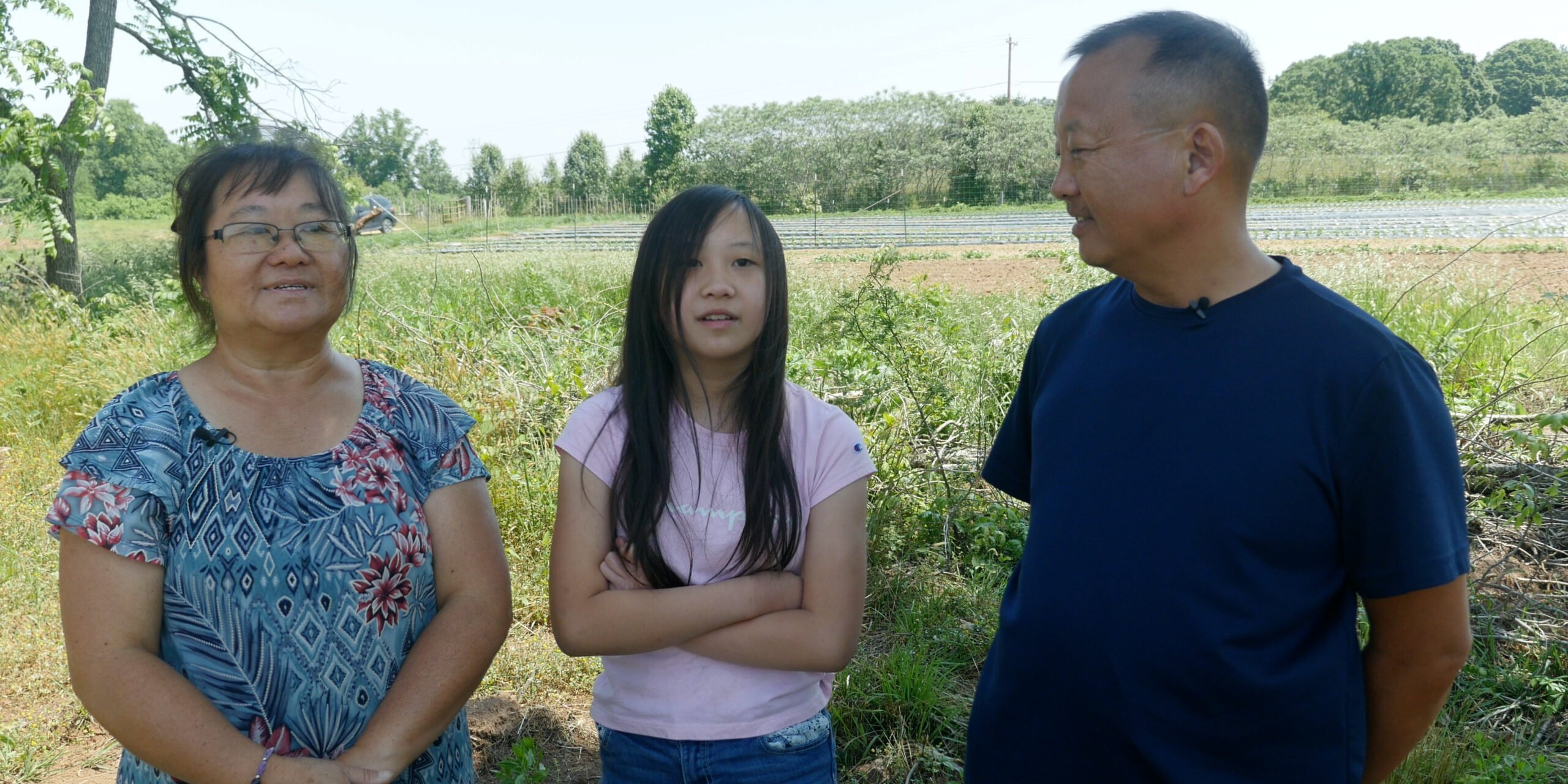Lee’s One Fortune Farm is a small, family-owned farm in McDowell County. The Lees are part of a community of Hmong farmers, many of whom came to the United States from Laos and Vietnam as refugees after the Vietnam War. Western North Carolina is home to one of the largest Hmong communities in the United States. Lee’s One Fortune Farm specializes in growing Asian produce, which they sell at farmers markets and to restaurants.
Chue: My name is Chue Lee.
Ariel: My name is Ariel Lee.
Tou: My name is Tou Lee, and we’re here at Lee’s One Fortune Farm. We grow all sorts of Asian variety fruits, vegetables,including rice. From the time that I was a young boy able to hold a hand tool, I always worked on a farm. The best part about being a farmer is the warm happy smiles you can receive when you also share that with friends and family.
Chue: The best part for me would be you know when you put something in the ground you’re going to receive something at the end. That’s the best part.
Tou: You have to have patience, lots and lots of patience.
Chue: We grow a lot of vegetables, the Asian greens like Asian kale, the Chinese broccoli Tokyo Bekana. All the greens we grow here.
Tou: We grow things that are not found in this part of the world, and rice is one of them. We also grow things like cassava, which is a root vegetable that you can also use the leaves as a green and that is uniquely different in this area as well. Snow peas and sugar snaps are primary staples in the Asian community, when it comes to stir fries and stuff like that. Sugar snap you can grow in a little bit warmer season, let’s say early spring on out. Snow peas you can tolerate a little bit cooler weather so if you have some shelter you can grow snow peas just about all winter. You don’t have to have bees to pollinate them. If you plant them in a greenhouse, all you have to do is go in there if you have them trellised shake the vine and it self-pollinates. So it’s like a strawberry, snow peas and sugar snaps are a prelude to your other vegetables in the summer.
Chue: We have a lot of preorder, restaurants, folks that know about us will come by and pick up at the farm or at the house.
Tou: We want to make a impact with the Asian produce into the Eastern Area here in this region because everything that’s Asian produce it’s coming from outside of the United States or all the way from California. There’s nothing really at a large quantity produced in this area at all.
Chue: We plant a lot of different vegetables and fruit for the community. We teach them different things about our fruit and vegetables that they have never known before. We teach them a lot of the stuff that we grow has different flavor, also is unique.
Tou: We’re able to bring to the local community and to a lot of local restaurants the things that they have never seen before. We’re a part of ASAP and we sell out all their local tailgate markets that they have open and we’re proud supporter of them in any which way that we can. Eventually, when this becomes a place that is well established, we’re going to try to develop a teaching center that’s going to be set in a cultural setup where we will teach the things that our community, the Hmong community knows and grows in this area. And by doing that is the hope that we can also teach the the community as a whole that they can also grow the same things that we grow here. And by doing that create an area here in Western North Carolina that is highly sustainable be a wonderful liaison to the food community.
This video was created as part of ASAP’s Growing Minds Farm to School program. Resources for including these as part of a classroom curriculum are available on the Growing Minds website.

